Aseem Chhabra in Berlin
Aseem Chhabra lists 12 of his favourite films from the recently concluded Berlin Film Festival.
With approximately 400 films in various categories -- Competition, Panorama, the experimental but hugely popular Forum section, Generation (children's films), documentaries, restored classics and even a focus on cinema and food -- the Berlinale is a giant treasure box of movies.
A first time visitor to the Berlin Film Festival can easily get lost as I did back in 2008.
Now having completed my sixth visit to Berlin to experience one of the world's premiere film festivals, I have learned to navigate my way balancing between different sections and at least trying to see as many good films as possible.
This year, I watched 29 films at the 64th Berlinale.
Here is my alphabetic list of 12 that I would recommend to film lovers as they seek new works at festivals during the rest of the year.
Black Coal, Thin Ice (China)
In Chinese filmmaker Diao Yinan’s Golden Bear-winning crime drama, a dead man's body parts are found in a coal factory.
The main cop (Liao Fan, winner of the Silver Bear for best actor) who is called to investigate the crime, is going through his own personal emotional instability as his wife has just handed him divorce papers.
That murder and another series of killings a few years later link to a woman (a wonderful femme fatale character) who works at a dry cleaning store.
Black Coal, Thin Ice is a dark, moody thriller quite similar in its tone to one of the best Korean films of all times -- Bong Joon-ho's Memories of Murder.
Unlike Hollywood's edge-of-seat action thrillers, BCTI has a slow pace, but it is a gripping, methodical murder mystery, in no hurry to find the killer.
Like in real life, the police officers experience disappointments and then some successes.
But as a film, BCTI is most satisfying, giving us a rare glance into life in a small town in today’s China.
Please click NEXT for more...
Boyhood (USA)
Image: Movie still from BoyhoodOver the last 12 years, Richard Linklater has been methodically shooting a film about a boy, his sister and their divorced parents.
Boyhood’s lead Ellar Colltrane is a little child when the film begins.
Nearly three hours later -- Boyhood is 164 minutes long -- he has reached the college-going age.
An American masterpiece, quite unlike any other film we have seen before, Boyhood takes us through Colltrane's character -- Mason's childhood and teenage years in what appears to be "real-time."
His mother (a wonderful Patricia Arquette, also acting in the film over 12 years) goes through a series of bad relationships with abusive men who have drinking problems, while his father (Ethan Hawke, who has also been involved in Linklater’s Before trilogy) has his own growing up to do during the course of the film.
Boyhood is the definite coming-of-age film.
It is so real, a mirror to our own lives. No wonder the Berlinale jury decided to award Linklater the Silver Bear for the best director.
Difret (Ethiopia)
Image: Movie still from DifretOnly the fourth film to be made in Ethiopia, Difret’s disturbing story will seem familiar.
A 14-year-old girl is abducted and raped by a man who wants to marry her (that ugly tradition still exists in rural parts of Ethiopia).
When she kills him in self-defense, she is arrested on murder charges, with the police and the prosecution insisting that she is a criminal.
The young girl is defended by an activist lawyer -- a woman who has taken up similar cases of abuse against Ethiopian women.
It is a David versus Goliath story, but in the process we witness the realities of Ethiopia and Africa -- a continent we rarely learn about through the arts.
Winner of this year's audience award in the Panorama section at the Berlinale (and also an audience award winner at the Sundance Film Festival), Difret is so powerful and tragic (so many German women seated around me were crying) that I can predict this will become one of the most talked about films in 2014 before and during the Oscar season later this year.
The Grand Budapest Hotel (USA)
Image: Movie still from The Grand Budapest HotelSurely Wes Anderson’s best film to date, The Grand Budapest Hotel is quirky, often very funny and charming, with a touch of blood and violence (a rare phenomenon in Anderson's otherwise mellow, happy cinema), with the very evil villains in the form of Willem Dafoe and Adrien Brody.
The story revolves around Monsieur Gustave (a wonderful Ralph Fiennes) -- a concierge, his young prodigy Zero, and the assorted characters who visit and reside in the hotel (Anderson’s production designer found an old department store located on the border of Germany, Czech Republic and Poland).
TGBH -- winner of the Silver Bear, the Grand Jury Prize reminded me of the pop-up picture books that we used to enjoy as children. '
There was a special magic in those picture books, a certain smell we associate with that memory.
And that is what the film is all about -- dreaming up our childhood memories in bright vivid colors with eccentric characters, a world that Anderson seems to live in everyday.
The film is Anderson's gift to adults who are searching for the child in them.
Jack (Germany)
Image: Movie still from JackGerman filmmaker Edward Berger's film in the competition section of Berlinale is a sad story about a 10-year-old boy and his younger brother as they fend for themselves in a world where there is no father and the mother is either working or out partying, often missing for many days.
And so Jack becomes the adult in the family, sometimes even caring for his mother, running around streets with his younger brother, sleeping in parks, street benches and abandoned cars, hoping to find love and comfort from a responsible grownup person.
Set in and around Berlin, Jack is a homage to similar harsh films directed by the Belgian duo -- the Darden Brothers. And like many of their films, Jack also rests on the strong performance by its lead child actor (Ivo Pietzcker).
It is not a pleasant film to watch by any means.
But it is a story so real that we cannot run away from this reality of Jack and so many other children around the world who live in similar difficult circumstances.
Killa (India)
Image: Movie still from KillaTwenty eight-year-old FTII graduate Avinash Arun has lovingly directed a Marathi film Killa, building upon his own memories of childhood.
Like Arun, the protagonist of Killa -- Chinmay has to cope with moving from one school to another and dealing with cultural changes and attempting to make new friends.
In Killa, the experience makes Chinmay stronger, despite the difficult adjustment moments.
Beautifully shot by Arun himself, the central focus of Killa is a bicycle trip Chinmay takes with his classmates to an abandoned fort (the scene was shot in Vijaydurg in Maharashtra).
A quiet, lyrical scene where the kids play hide and seek and then Chinmay gets separated from his friends, as the monsoon rain lashes out at him, it is one of the most beautiful moments realised in an Indian film in the recent years.
Killa was awarded the Crystal Bear for the best film, by a children jury and another special mention by an international jury.
It is a rare achievement for an Indian film and a much deserved one as well.
Love is Strange (USA)
Image: Movie still from Love is StrangeNew York-based filmmaker Ira Sachs' Love is Strange is a story of two elderly gay men -- played with much compassion by Alfred Molina and John Lithgow, who after years of living together decide to get married.
But soon after one them loses his job -- fired from a Catholic school for publicly acknowledging his homosexuality. The couple end up losing their apartment and have to live separately with relatives and friends.
Love is Strange is a very New York story, where same-sex relationships are considered a part of the fabric of the city and yet there are strains of homophobia and other discomforts in tight living spaces.
Sachs is a very generous filmmaker, a terrific chronicler of the lives of New Yorkers and he brings that out rather well in Love is Strange.
The film boasts of a large and terrific ensemble cast, including a wonderful Marisa Tomei.
Macondo (Austria)
Image: Movie still from MacondoThe Austrian competition entry at the Berlinale, Macondo looks at the lives of Chechnyan refugees living in a settlement outside Vienna -- a difficult world of people living in a limbo state, hoping to get legal status if they can prove legitimate reasons they had to leave their homelands.
The film's protagonist is 11-year-old Ramasan who lives in a rather well kept apartment with his mother, and two younger sisters.
The father reportedly was killed during the civil war in Chechnya but the family has no proof and hence they are stuck in the refugee camp.
First time director Sudabeh Mortezai gives a documentary feel to a very stark life while also guiding his young Muslim protagonist through a moral dilemma that will make him an adult long before his childhood is over.
Macondo is a haunting film and Ramasan’s soft face stays with you long after the credits have rolled.
Praia do Futuro (Brazil/Germany)
Image: Movie still from Praia do FuturoSet in three acts, the Brazilian-German film Praia do Futuro starts on a beach resort in Brazil.
A gay German man Konrad loses his friend while getting caught in a dangerous current.
But soon after he starts a torrid relationship with Donato, the lifeguard who saved his life.
Praia do Futuro is beautifully shot, three-actors piece, where love, relationships and family take on a very different meaning than we know and understand in the conventional sense.
The third chapter of the film has warm, yet unexpected twists that reassure our faith in mankind.
Praia do Futuro is a very strong film from Karim Aïnouz, a Berlin-based Brazilian director, and it gives a definite sense of the meaning of love.
Stations of the Cross (Germany)
Image: Movie still from Stations of the CrossAnother German film in the completion section, Stations of the Cross won the Crystal Bear for Best Screenplay, although for a few days it seemed to be the critics' favorite for the top Golden Bear award.
In the hands of the German director Dietrich Bruggemann, Stations of the Cross is a story of a 14-year-old girl Maria (there were quite a few sad films with children this year), who is brought up in a strict conservative Catholic tradition by her overbearing mother.
Meanwhile, like a regular teenager, Maria has to cope with other realities around her including a boy seeking her affection and popular culture.
Brüggemann uses the camera sparsely -- the opening sequence is a 15-minute long take of a priest sitting in the middle of the table as he takes a class with his young students who are preparing for their confirmation.
This is followed by a grand vista of rolling hills, and the actors come in and out of the shot, while again the camera sits still.
The film's lead Lea van Acken gives a heart-wrenching performance of a teenager out to please everyone and driven to the tragic path of becoming one with Jesus Christ.
Things People Do (USA)
Image: Movie still from Things People DoOscar-nominated editor Saar Klein (Almost Famous and Thin Red Line) makes his directorial debut with a very solid film that examines the downward trend in the American economy from the point of view of one man.
In Things People Do, Wes Bentley is mesmerising as an unemployed insurance salesman who leaves home every morning giving the sense to his wife and family that he is still working.
His lies land him on a criminal path until he is caught in a downward spiral, with little hope of recovery.
But under Klein's careful guidance, Bentley's character maintains a clean heart. While we totally believe his situation, but are also rooting for him, hoping for a safe way out of the mess that he has landed himself in.
Things People Do -- shown in the Panorama section, works like a gripping thriller, although the protagonist is like a real human being and not a cardboard cutout from Hollywood.
The Way He Looks (Brazil)
Image: Movie still from The Way He LooksA runner-up for the audience award in the Panorama section, the Brazilian film The Way He Looks is a very likeable coming-of-age film with a couple of twists.
The film's protagonist is a charming high school student Leonardo is blind. His best friend is a tall lanky classmate Giovana.
Giovana likes Leonardo, but he does not reciprocate to her affection. And then a new student Gabriel joins the school. Gabriel is caring towards Leonardo and slowly a gay relationship develops between the two.
For Leonardo his lack of sight is hardly an issue – it is a bigger deal for his parents. His concerns are no different than that of any other teenager.
A crowd-pleasing film The Way He Looks does not judge its characters.
Rather the film warmly accepts their sexual preferences and makes us root for the sweet teenagers.

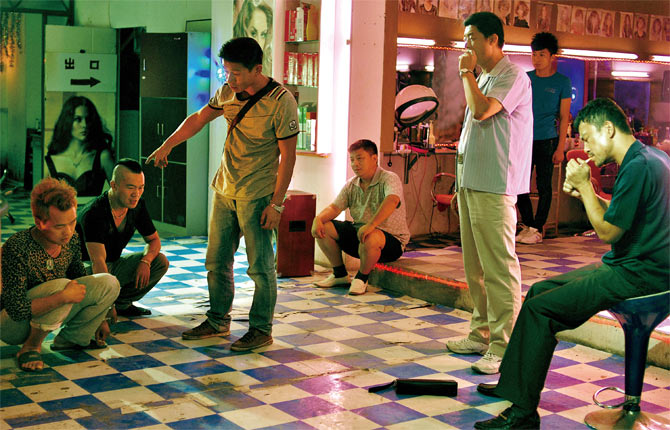
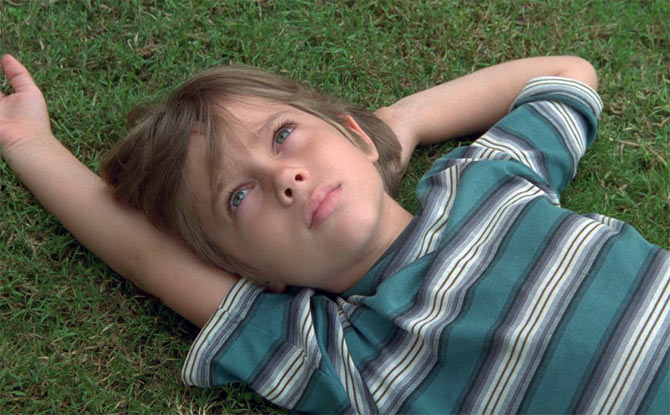
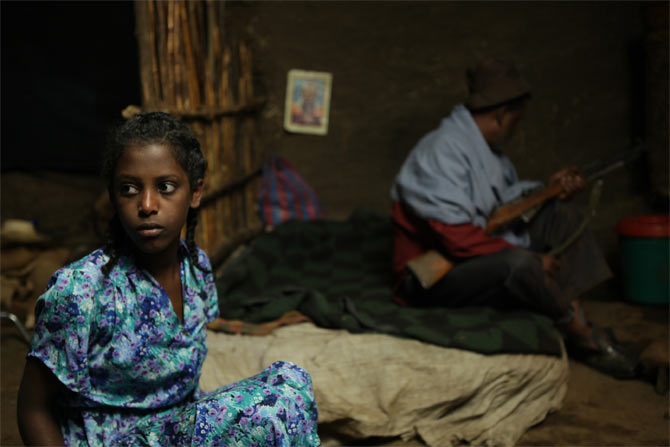
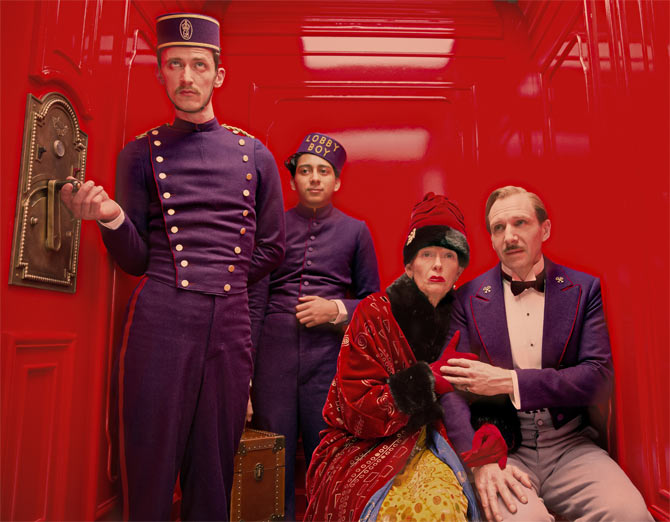

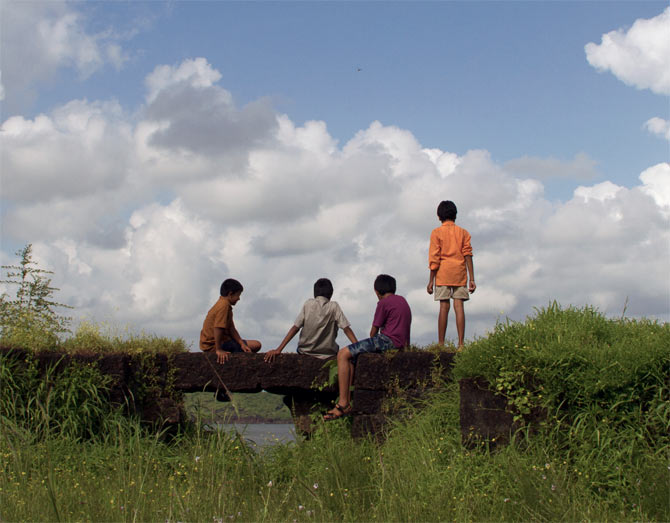
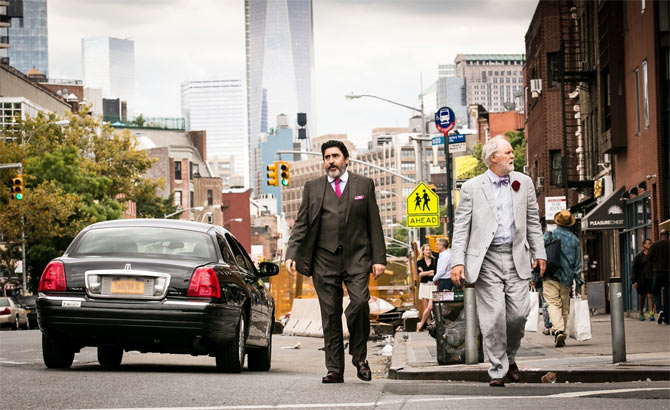
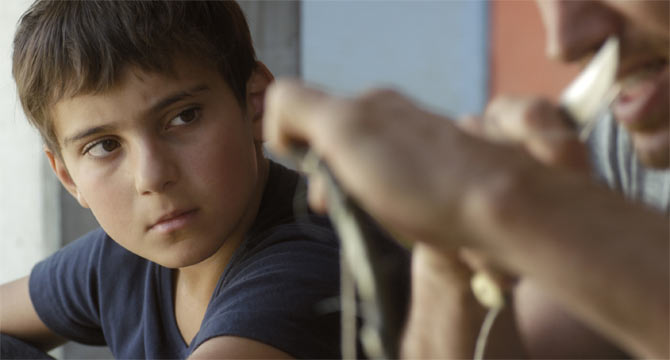

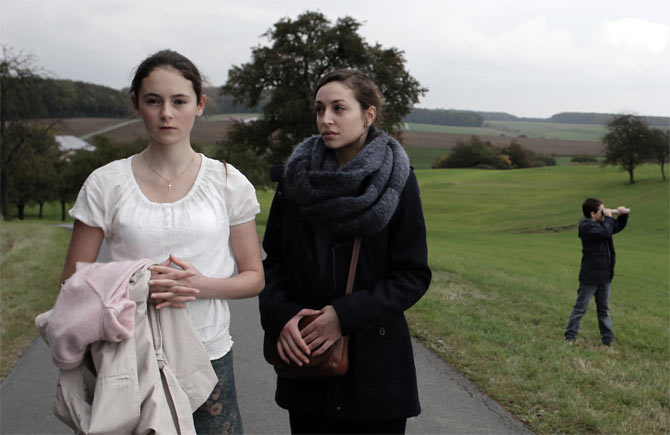

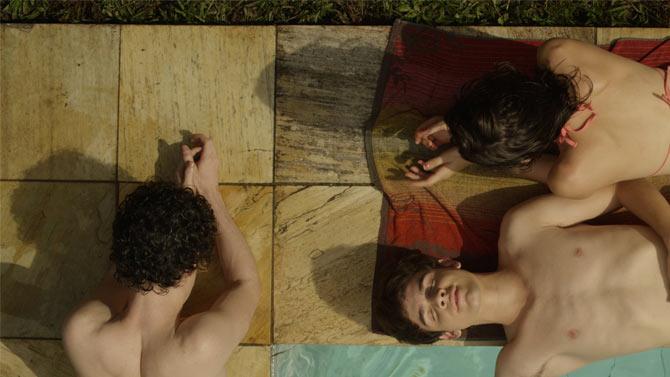
Comment
article